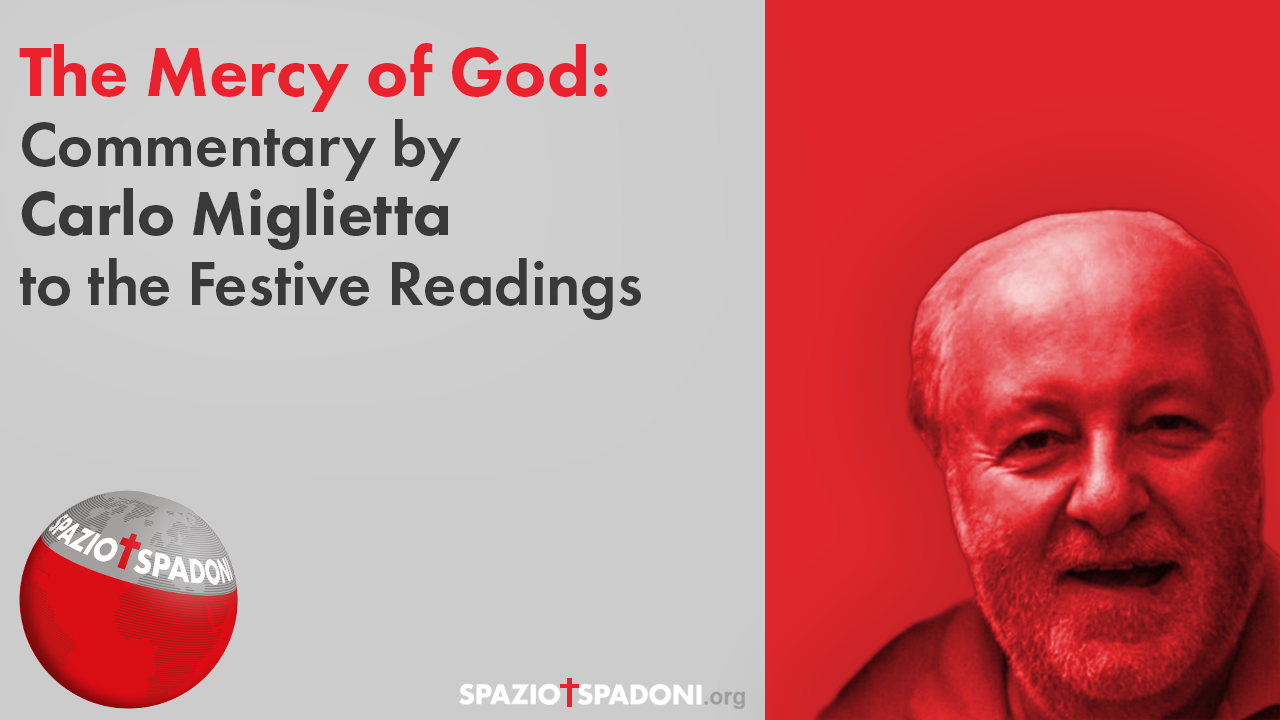
Sunday XXVI Year B – The Radical Ethics Of Love
Readings: Nm 11:25-29; Jas 5:1-6; Mk 9:38-43.45.47-48
Today’s Gospel proposes to us three ethical themes of extraordinary strength: not to consider ourselves a monopoly of the truth, the avoidance of scandal, and the radicality of following the Lord.
The first invitation is to truly believe that “the Spirit blows where He wills” (Jn. 3:8), as the First Reading (Nm 11:25-29) reminds us well, in which not only the Seventy who are in the Holy Tent are prophets, but also the two who are outside in the camp. It is a condemnation of all fundamentalism: an invitation to humility, to search together with all Christian denominations and also with other religions, which, as the Council reminded us, “reflect a ray of the truth that enlightens all men” (Nostra Aetate, no. 2). It is an exhortation to strive for a new humanity, without preclusion toward anyone, careful to grasp and value every positive contribution. And it is a slap in the face of all the particularisms that mar the Church, in the satanic logic of my group being nicer than yours, my movement being more evangelical than others, my parish that another one like it is not, of thinking in short, first of my garden and then of the rest, first of my parish and then of the diocesan Church, first of the diocese and then of the whole Church, first of the Church and then of the world… It is the sin of always thinking of “us” as opposed to “others,” instead of expanding the heart to the dimensions of the earth, following the example of God’s infinite mercy (Mt. 5:43-48).
“Skàndalon” means, in Greek, ‘obstacle’ in the sense of both ‘stumbling stone’ and ”dividing wall.” Jesus warns us about the seriousness of giving scandal in terrible words: better to kill oneself than to give scandal (Mark 9:42)! Instead, in our society anything goes and, in the name of freedom of thought and expression, pornography is rampant and violence is propagated without restraint by the mass media; among us the “clever” are exalted, the successful by any means, the “bribe” is justified as necessary, the ungodly exalted as those who really know how to live (but what condemnation he receives from James in the Second Reading: Jas 5:1-6!)… Except then we tear our robes when faced with pedophilia, rapes, feminicides, brutalities, and the corruption of politics: but we forget that this is the result of a lack of education, which must contemplate knowing how to place “a guard” (Sl 141:3) over our eyes, our lips, our heart. What is needed is a habit of “watchfulness,” for “the flesh is weak” (Mk 14:38), with a priority focus on our “least” brothers and sisters (Mk 9:42; cf. Rom 14:13-15:2)!
Scandal is then to put up a wall in front of others: so many men do not believe because we the Church give a bad testimony, and we prevent by our behavior that others see, through us, the sweet Face of God. Instead of being “the city on the mountain,” the “lamp over the bushel,” so that “they may see your good works and give glory to your Father who is in heaven” (Mt. 5:14-16), we stand in the way of the world with our inconsistency, with our hypocrisy, with our sin…
With Semitic literary genre, Jesus finally underscores the disciple’s call to radicality: to enter the Kingdom, we must be willing to amputate a limb or pluck out an eye (Mk 9:43-48). To choose Jesus is to take a definitive stand between the flesh and the Spirit, between worldly and divine logic, between darkness and light (Jn 3:19-21). No compromises, half-measures, partial commitments are allowed (Rev 3:16): “for whoever wishes to save his life will lose it, but whoever loses his life for my sake and the gospel’s sake will save it” (Mk 8:35)…
